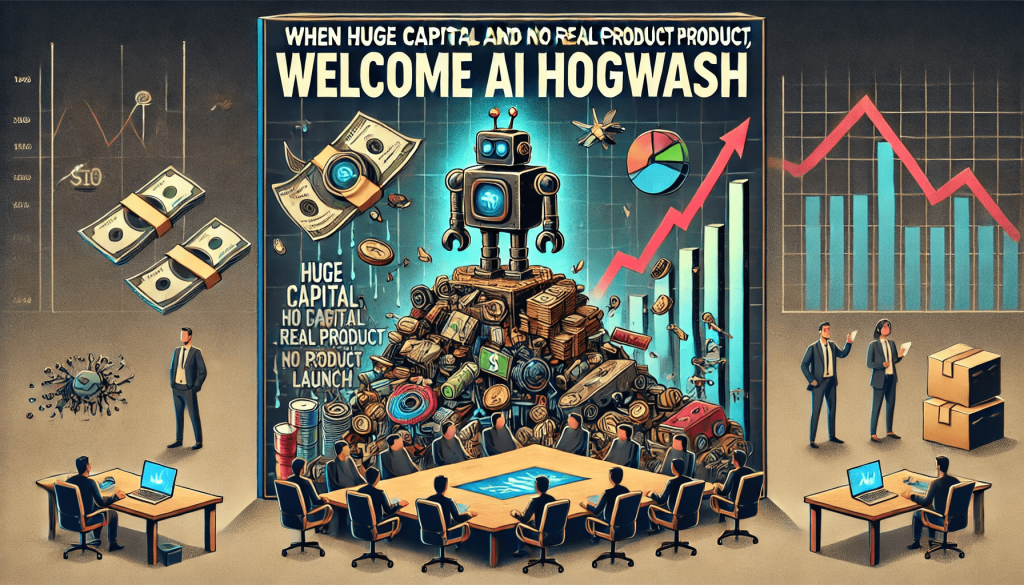What Happens When Huge Capital Meets No Real Product? Welcome to AI Speculation!

Despite its hefty $1.3 billion investment, the recent collapse of Inflection serves as a stark reminder of the volatile AI startup landscape. Inflection’s flagship product, Pi, a ChatGPT rival, failed to gain traction, leading to the company’s dismantling by Microsoft. This case exemplifies the broader trend of massive capital influx into AI ventures lacking substantial products.
The Rise and Fall of Inflection
Inflection was founded by notable entrepreneurs such as Mustafa Suleyman of DeepMind, Karén Simonyan, and Reid Hoffman. Suleyman, a co-founder of DeepMind, had previously contributed to its advancements in AI, which eventually led to its acquisition by Google. Simonyan brought extensive experience from his work on AI research, while Hoffman, co-founder of LinkedIn, provided substantial entrepreneurial and investment acumen.
With backing from influential investors including Bill Gates and Eric Schmidt, Inflection aimed to create a more empathetic AI companion. The company took around two years to develop Pi, its primary product, hoping to leverage its founders’ reputations and the significant capital raised to break into the AI market.
Why Pi Failed
Pi’s failure is attributed to several factors:
- Lack of Unique Value: Pi’s context window was significantly shorter than competitors, hindering its ability to provide sustained conversational quality.
- Market Oversaturation: The AI companion market is fiercely competitive, with established players like ChatGPT and Character.ai leading the pack.
- Financial Mismanagement: Heavy investment without a corresponding viable product highlighted the risks of capital-heavy ventures in AI.
AI Funding and Startup Failures
The AI sector saw an estimated $50 billion in investments in 2023 alone. However, many startups have failed to deliver on their promises. Some notable closures in the last 18 months include:
- Inflection: Absorbed by Microsoft, ceasing independent operations.
- Vicarious: Acquired by Alphabet, failing to achieve its goal of human-like AI.
- Element AI: Acquired by ServiceNow after struggling to commercialize its research.
| Startup | Total Investment ($M) | Years to Product Launch | Peak Annual Revenue ($M) | Outcome |
| Inflection | 1300 | 2 | 5 | Acquired by Microsoft |
| Vicarious | 150 | 4 | 2 | Acquired by Alphabet |
| Element AI | 257 | 3 | 10 | Acquired by ServiceNow |
| MetaMind | 45 | 2 | 1 | Acquired by Salesforce |
| Geometric Intelligence | 60 | 1 | 0.5 | Acquired by Uber |
The Future of AI Investment
This trend of high investment but low product viability raises concerns about the future of AI innovation. Consolidation around major players like Microsoft, Google, and OpenAI could stifle competition and limit diversity in AI development.
Conclusion
The downfall of Inflection underscores the precarious nature of AI investments. As the industry continues to grow, investors must prioritize viable, innovative products over mere potential. This shift could foster a more sustainable and dynamic AI ecosystem.

